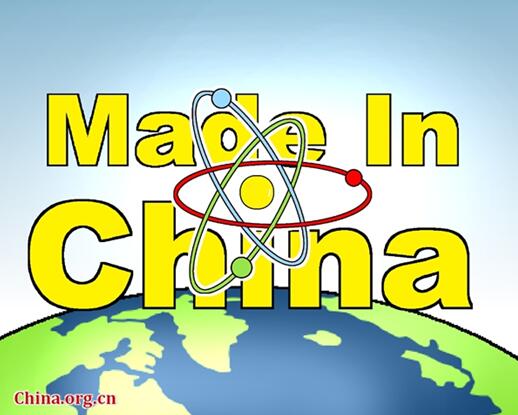China underpins S&T ambition
 0 Comment(s)
0 Comment(s) Print
Print E-mail China.org.cn, June 29, 2016
E-mail China.org.cn, June 29, 2016
China is pegging its future prosperity on growth momentum generated from innovation and enhancement of overall strength in science and technology (S&T), according to remarks made by General Secretary Xi Jinping of the Central Committee of the Communist Party of China (CPC) at a major conference on science and technology in Beijing on May 30.
 |
|
The promise of technology |
It was staged by the Chinese Academy of Sciences, the Chinese Academy of Engineering and the China Association for Science and Technology.
China should establish itself as one of the most innovative countries in the world by 2020 and as a leading innovator by 2030 before realizing the objective of becoming a global leader in S&T by the centenary anniversary of the founding of the People's Republic of China in 2049, Xi said, reiterating the country's three-step strategy for innovation-driven development, which was unveiled earlier this month.
Timely innovation imperative
Innovation was one of the conference's key words. Going against the Western stereotype of a hard-working and uncreative "factory for the world" that churns out mounds of low-quality goods, China is now closing the innovation gap.
The country's R&D spending, second only to the United States, has grown by more than 11 percent annually during the past three years.
Yet "the situation, in which our country is under the control of others in core technologies in key fields, has not fundamentally changed, and the country's S&T foundation remains weak," Xi said.
"We could be thrown into an unfavorable situation and miss opportunities for development -- or miss an entire era -- if we failed to recognize changes, respond to changes and innovatively seek changes," he warned.
In the process of advancing the supply-side structural reform and implementing the tasks of cutting overcapacity and excess inventory, de-leveraging, reducing costs and addressing points of weakness, more advances in innovation are needed, he stressed.
More power for scientists
"Scientists should be allowed to freely explore and test the bold hypotheses they put forward," Xi told the attendees.
He called for a sound environment for S&T personnel and promised to grant leading scientists more power and liberty to decide the direction of their research and greater management of research funds and resources.
Scientists should not be rushed for the sake of "making progress" and constrained by rigid systems, he said.
He encouraged scientists and technicians to respond to the country's major strategic demands, to strive to advance research in core technologies and to move up to the world's scientific and technological "high ground."
"Core technologies and cutting-edge industries are important in creating new engines for economic growth," noted Zhang Jingwei, a researcher with the Charhar Institute.
China has 81 million science and technology workers, who are known as the "backbone" of the country's innovation-driven development strategy.
Management reform
Stressing reform of S&T management, Xi said that the government will try to form an energetic science management and operation mechanism through deepening reform and innovation while continuing to better allocate resources and evaluate research findings.
He also called for strengthened consultation for decision making and high-level S&T think-tanks.
The country will provide more support for tech companies, especially small and medium firms, and reorganize research institutes and universities, Xi said, adding that the country also plans to create a few cities or regional centers that are attractive to outstanding innovation industries.
Xi also said that intellectual property rights must be better protected, and a distribution policy whereby knowledge has greater value should be implemented.
He also urged academicians to help raise the scientific literacy of the whole society in order to release the creativity of 1.3 billion Chinese.
More budget support
To bolster S&T innovation, the Chinese government will simplify budgeting for research projects, increase incentives for researchers and relax the management of equipment purchases, according to a statement released on May 31 after an executive meeting of the State Council.
Unnecessary administrative barriers for universities and research institutions will be removed so as to better stimulate the enthusiasm of academics.
Universities and research institutions will also be given more freedom in purchasing equipment for research purposes and enjoy preferential treatment in land use.
By nurturing the mechanism for promoting innovation, letting the market play a larger role and combining research with industrial demand, China will be able to find new growth momentum to fuel future growth, said Wang Yiming, deputy director of the Development Research Center of the State Council.






Go to Forum >>0 Comment(s)